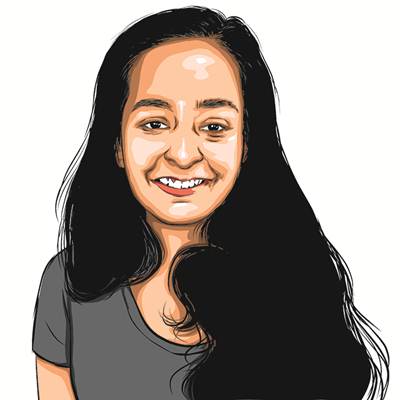Opinion ‘Kaala Paani’: A show that remembers — and reminds us of the value of care
The seven-part series asks what it means to be human and live in this world when things seem out of our control. Each character shows us that there are multiple, contradictory and conflicting answers to this question.
 Kaala Paani reminds us that the answers that have won are not always the correct ones. (Twitter/ @strictlyvikas)
Kaala Paani reminds us that the answers that have won are not always the correct ones. (Twitter/ @strictlyvikas) At any other time, Netflix’s Kaala Paani would have been science fiction. In a post-Covid world, it appears contemporary, inspired by immediate events. Set in the Andaman and Nicobar Islands in the year 2027, the world of the series has already battled Covid and is now grappling with a similar disease — LHF-27.
The waterborne disease is resistant to antibiotics and its sudden, ominous onset catches people by surprise, eventually leading to death. The talk of lockdowns, screening tests, and wearing masks to work is routine. More than these obvious references though, this feels like a pandemic show because it remembers. Memory is flaky. You remember things you never thought you would. You forget things that seemed so urgent at one point.
The seven-part series, written by Biswapati Sarkar and directed by Sameer Saxena and Amit Golani, remembers the dominant feeling of uncertainty the pandemic left many of us with, and how death had become so every day. The first episode itself cuts short the life of a character who we assumed would be the show’s main crusader. This becomes a pattern. The fact that many of the characters never get a chance to live a full life seems like a familiar memory from Covid times.
Many of them we have gotten to know, most of them also seem to be the ones doing good — the committed activist, the responsible mother, the helpful ex-nurse. It seems unfair. Death is random and illogical. Fictional characters are usually protected from this transient nature of life. The ones who do survive do not do so because they are more responsible than the others. It is just luck, often privilege, and eventually, as the series goes on to emphasise, survival of the fittest. The ambitious themes that the series tackles include a reference to the unequal power struggles at the heart of the development of civilisation as we know it. It is the Orakas (a fictionalised tribal group) who understand the natural world intimately enough to know how to live with it in harmony. They are the only ones who are safe from a virus that is itself a product of capitalist greed, and yet, they are the ones whose very existence is precarious and sacrificable in such a society.
In some ways then, the series asks what it means to be human and live in this world when things seem out of our control. Each character shows us that there are multiple, contradictory and conflicting answers to this question. As the threat of the virus grows, one of its main protagonists, Lieutenant Governor Qadri, has to make a decision: Should he choose to sacrifice the lives of a few to save the lives of many others? In these dilemmas, Kaala Paani reminds us that the answers that have won are not always the correct ones. For, if taking care only of our own interests is how previous generations have survived, then perhaps we have to go against that very nature to retain our humanity.
A short dialogue exchange at the beginning stayed with me. The young Jyotsna, who will grow up to be one of the many characters grappling with this question, tells her school friend that she is interested in being a nurse, not a doctor. It is the “care in healthcare” that always interests her. Because we never watch innocently, always informed by our context, I could not help but think of the many acts of care we observe in the videos that Palestinians are sharing on social media every day. These videos record the unimaginable cruelty and violence currently being unleashed on them by the Israeli state machinery, to which all of us are now witness.
Death is every day again and there is no virus to blame it on. And yet in these videos, we see people taking the time to take care of each other. A paramedic soothes a child, a journalist plays with a baby, someone thanks god for showing mercy, a group gently rescues a cat stuck under rubble. Like in the show, as in life, people who believe in these small acts of care may or may not survive. But they are the only ones who hold out any hope. As poet Rafeef Ziadah said, they teach us life.
The writer teaches film studies at Ashoka University and has co-edited ReFocus: The Films of Zoya Akhtar. The views expressed are personal




